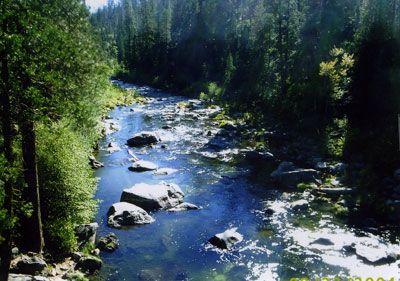All Nonfiction
- Bullying
- Books
- Academic
- Author Interviews
- Celebrity interviews
- College Articles
- College Essays
- Educator of the Year
- Heroes
- Interviews
- Memoir
- Personal Experience
- Sports
- Travel & Culture
All Opinions
- Bullying
- Current Events / Politics
- Discrimination
- Drugs / Alcohol / Smoking
- Entertainment / Celebrities
- Environment
- Love / Relationships
- Movies / Music / TV
- Pop Culture / Trends
- School / College
- Social Issues / Civics
- Spirituality / Religion
- Sports / Hobbies
All Hot Topics
- Bullying
- Community Service
- Environment
- Health
- Letters to the Editor
- Pride & Prejudice
- What Matters
- Back
Summer Guide
- Program Links
- Program Reviews
- Back
College Guide
- College Links
- College Reviews
- College Essays
- College Articles
- Back
Summer
Near my home there’s a nature preserve right in the middle of the city. It isn’t huge by any stretch, but it’s big enough—a few winding trails that crisscross, several markers along dirt cuts with features of the area’s biodiversity—tree types, rock forms, etc.—and some bridges back and forth over a wide creek whose small tributaries are often dried out and cracking. It’s a little ecological gem right in the middle of our chaotic move-along metropolis.
Whenever I feel overwhelmed with life—the circumstances of my personal world, or the world at large—I walk the trails for a couple hours. I spend silent time looking through trees, at lizards slinking away over rocks, at the thick bushes of flowers lining parts of the trail—blue bells and orange tiger-striped horns.
Once I was walking this trail with my children when my daughter did something unexpected. We were clipping along when—walking just ahead of us—she stopped suddenly. Her brother and I stopped too, since she’d commandingly put out her arms. She whipped around and whispered loud to us—as kids often do—putting her finger to her lips: “Shhhhhhh, quiet!” And we became so, all of us standing still in the sounds of the small forest: echoing bird songs and the slight snap of animals combing the woods. We stood there for a long time. My daughter then whispered, “Hear God?”
We were moving so fast I had stopped paying attention, but then my little girl helped me see it clearly. I could hear the heart of God pumping its eternal quiet, however faint. I slowly moved to kneel down in front of her and look her in the eye, and she put her little hand on my shoulder. I’m not sure how long our little family stayed there, but it wasn’t long before a jogger came up from behind us and the moment evaporated into air, snapping us out of our accidental meditation. We kept on down the trail, the small, sacred exchange pumping in my blood. I recited to myself some poems I know by heart, some lines from Psalm 104: “How many are your works, O Lord! In wisdom you made them all; the earth is full of your creatures. There is the sea, vast and spacious, teeming with creatures beyond number—living things both large and small.”
I could try to spend my life in that peace of observation, but I don’t think I’m meant to. Many people say that they feel God all the time, that they experience him often. And I don’t mean to question their experience when I say that that has not been mine. I guess I experience God in small fragments, like pieces of a puzzle—I keep adding bits over time, trying to build some crisp image, some strong picture. And every time I add a piece to the picture, I find it looks different than I remember, or that it isn’t quite what I expected to remember. As if God is inviting me to understand that my life is an intimate and fragile string of connections, as if God and I have been holding hands for a long while, and I’m just coming to realize it; the wonder of God’s creation kissing my experience so simply that only in calm, only in peace, can it be discovered.
It’s here I begin my belief, in the space of that little unnoticed intimacy, where my momentary piece of the picture is small enough for me to see it clearly. I suppose that in many ways, I stand against seeing the big picture the way many people claim or want to.
By quiet observation, we bear a connection to our origins, however distant or obscure. But the connection isn’t rooted in abstractions—instead it’s imminent, tangible, full of dust and wood and water and light.
That’s the job of the poet: record that reality, write down bewilderment and awe—make it known in a way that honors the reality itself by words. Poetry asks me to be content in my littleness, my humble place. Poets must believe in what they cannot see, and the little intricacies in us that create clarity: the vastness of a deliberate world.
From this earth—up from this earth our bodies become. Elements and flecks of interstellar powder that make the stars also make our shells—houses for bones, but also something like divinity. It’s our shared nature to be made by the same holy ingredients. Our smallness is real and it’s what makes us real. Wars, rumors of wars, political chaos, economic tragedy—these things seem distant in the face of such vastness.
This natural peace is a kiss from the divine—to know littleness and breathe it in, to feel the hand of a girl holding your shoulder. It’s a peace I can’t come to without the world, and yet it is of course beyond it. Peace I can’t see but only experience; peace alive in me: wild, bare, and from the ground.

Similar Articles
JOIN THE DISCUSSION
This article has 0 comments.
